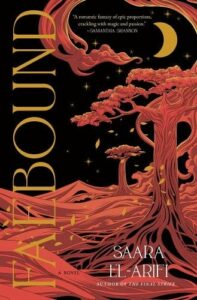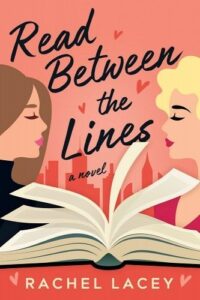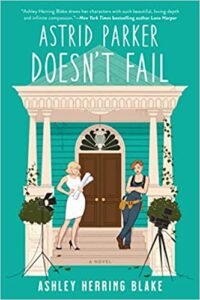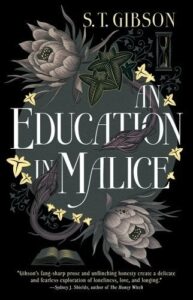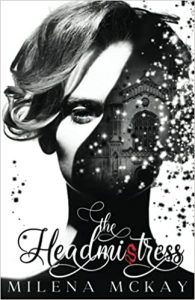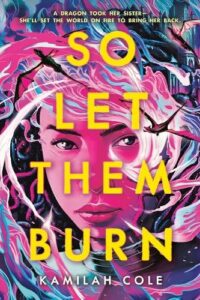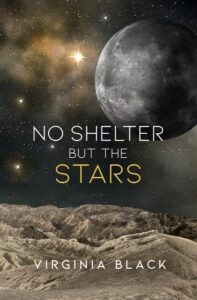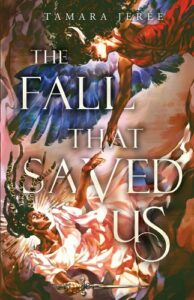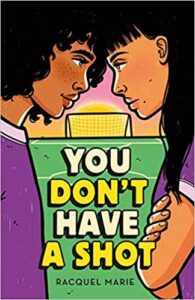Buy this from Bookshop.org to support local bookstores and the Lesbrary!
I have recently become deeply entrenched in the lands of fantasy romance fiction, and when I heard that Saara El-Arifi, author of the fabulous The Ending Fire trilogy, was releasing a new sapphic fantasy romance, I was eager to read it! Faebound (2024) is the first book in a lush and exciting trilogy with the well-crafted worlds that we’re used to with El-Arifi’s fiction.
Faebound follows Yeeran, a warrior in the elven army, and her younger sister, Lettle, who is a diviner. When Yeeran miscalculates in battle and makes a terrible mistake that costs lives, she is exiled from the Elven lands. Cast out into the wilderness beyond civilization and beyond safety, Yeeran and Lettle must fend for themselves—that is, until they encounter the seemingly impossible presence of the fae in the lands beyond Elven territory. The fae have been in hiding for a millennium, but Yeeran and Lettle are thrown into their world, and they find themselves embroiled in a plot much larger than themselves, but one that affects their loyalties and their desires.
I enjoyed this novel overall, but there were parts of it that left me with mixed feelings. My primary genre lately as a reader has been fantasy romance, and El-Arifi’s latest is a unique and absolutely individual contribution to the genre. The world is complex and fascinating, and Yeeran and Lettle’s characters are vividly articulated. As a first book in a trilogy, this book is doing a lot to set up the larger plot and the world of the later books. I do wish that perhaps this had been a bit longer in order to fully immerse the reader in the world, but at no point was I lost or confused. El-Arifi makes use of the worldbuilding space to make the stakes of the plot clear for the reader. A slower development might have been useful—I’m thinking of the kind of pace of The Final Strife.
I do think that some of the nuances in the romance suffered as a result of the length. I loved the sapphic romance element, but it felt so rushed, and I wasn’t seeing the transition from enemies to lovers as anything but abrupt. It just didn’t feel exciting to me, despite starting off so well in the beginning. The other romances in the novel were stronger, but I did want more.
Plot-wise, Faebound was fun. I did immediately figure out the main reveal in the novel, so it was a bit maddening to watch the characters struggle to figure out what was obvious, but I was very much along for the ride throughout.
Overall, Faebound is an interesting addition to the fantasy romance genre and it’s got lots of great BIPOC and queer representation, barring some of the clunky elements related to the pacing and the romance.
Please add Faebound to your TBR on Goodreads and follow Saara El-Arifi on Instagram.
Rachel Friars is a Doctoral Candidate in the Department of English at Queen’s University in Ontario, Canada. Her current research centers on neo-Victorianism and lesbian literature and history. Her work has been published with journals such as Studies in the Novel, The Journal of Neo-Victorian Studies, Queer Studies in Media and Popular Culture, and The Palgrave Handbook of neo-Victorianism.
You can find Rachel on X @RachelMFriars or on Goodreads @Rachel Friars.

